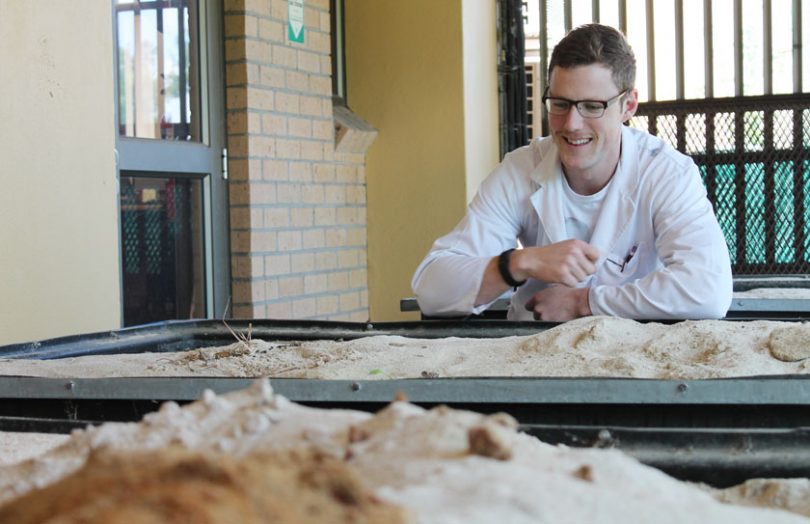Gravity, solar power and sand may be the solution to treating wastewater that is produced by the South Africa’s wine industry.
Civil Engineering student, Gareth Holtman, has installed and is operating a pilot-system, which relies on these three factors to treat winery wastewater at a winery in Stellenbosch.
The research, which forms part of his masters, builds on an ongoing research project at the Biocatalysis and Technical Biology Research Group that is aimed at developing cost-effective methods to treat winery wastewater.
Wineries produce large amounts of wastewater which needs to be treated before release. However, many small-scale farmers cannot afford to implement sophisticated and costly wastewater treatment systems. This is a concern locally and abroad. The researchers hope to provide small-scale wineries with a simple method to deal effectively with winery wastewater in order to comply with legislative and ecological requirements.
Gareth says that the biological sand filter treatment system relies on river sand with attached microbial biofilm to treat the winery wastewater. The wastewater is pumped to a holding tank using solar energy, and organic pollutants are degraded by the microbial population as the wastewater flows through the biofilters. Flow is achieved by means of gravity, a key component of the pilot system.
Gareth says the system, which has a 50 square meter footprint, treats approximately 400 liters of wastewater per day. It is simple to operate, and requires little maintenance.
“At the moment I am analyzing the effectiveness of the sand filers with real life winery wastewater,” he says.
Gareth says he is also looking at the inorganic fraction of winery wastewater.
“Often the cleaning products used to clean tanks have high sodium levels. Water that has high sodium levels is damaging to the environment. The biological sand filters have been shown to reduce the sodium absorption ratio by dissolving calcium in the sand filter, but further tests must be performed to establish the long term effectiveness of this,” he says.
Gareth says the treated water can be used for other purposes, including irrigation at the wineries.







